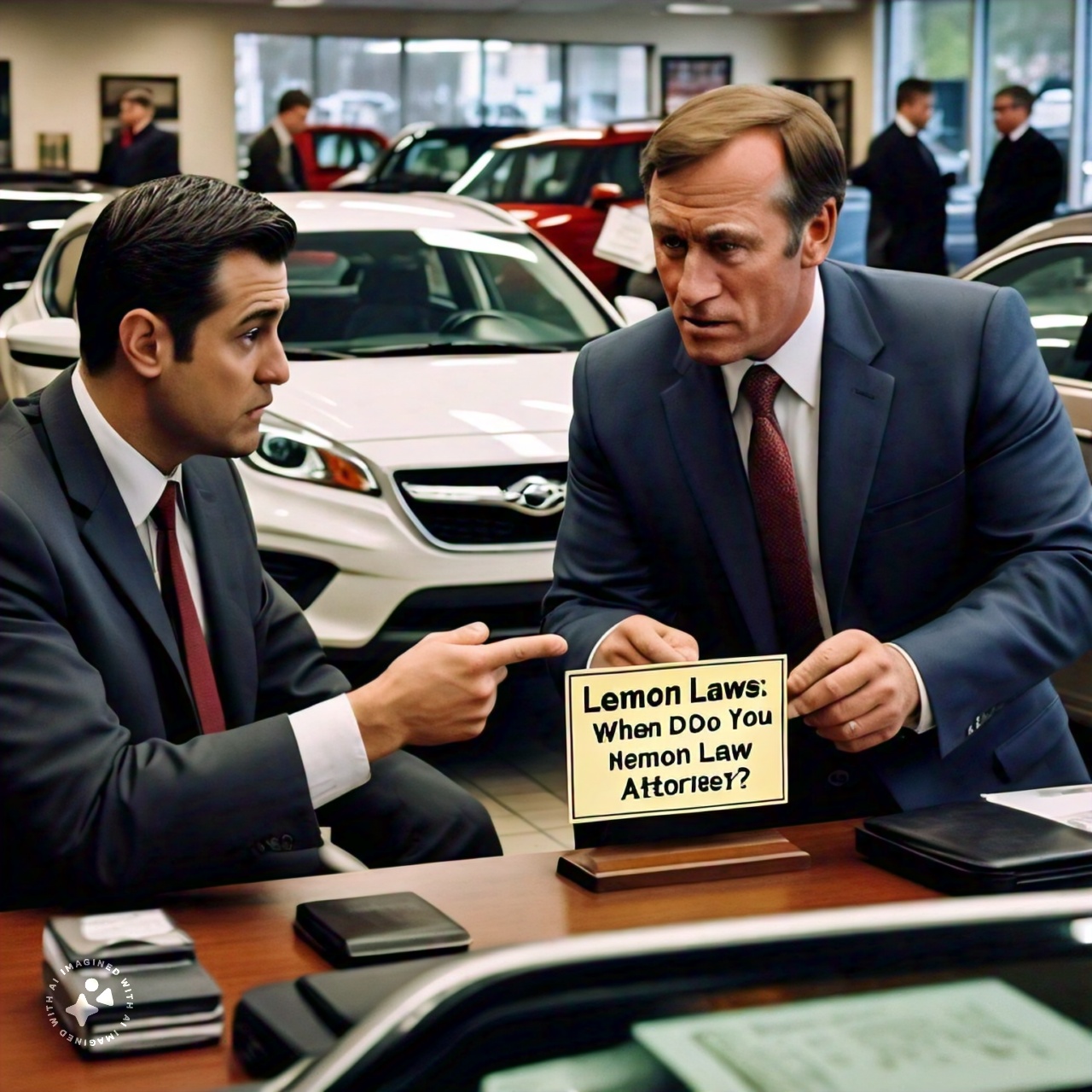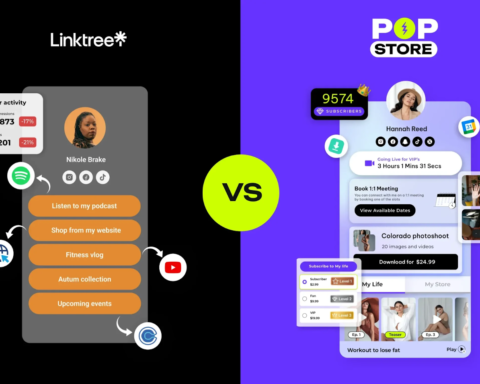Post Preview
Key Takeaways:
- Lemon laws protect consumers from defective vehicles that fail to meet quality and performance standards, ensuring manufacturers honor their warranties.
- Consulting a lemon law attorney in Los Angeles early in the process can significantly improve your chances of a favorable outcome, providing professional guidance and representation.
- Documenting repair attempts and understanding your legal rights are crucial steps in pursuing a lemon law claim. Comprehensive records and familiarity with applicable laws empower consumers to take effective action.
- Choosing an experienced and reputable lemon law attorney is essential for effectively navigating your case. The right attorney will be dedicated to achieving your best possible result The Daily Mirror.
- Taking immediate and appropriate actions can help you achieve a successful resolution, obtain the compensation you deserve, protect your investment, and ensure your safety.
Table of Contents:
- Introduction
- What Are Lemon Laws?
- When to Consult a Lemon Law Attorney
- Types of Vehicle Defects Covered Under Lemon Laws
- Understanding Your Legal Rights
- How to Choose the Right Lemon Law Attorney
- Steps to Take if You Suspect Your Car Is a Lemon
By understanding lemon laws and knowing when to seek professional legal assistance, you can protect yourself from the financial and emotional stress of owning a faulty vehicle. If you suspect your car is a lemon, don’t hesitate to consult a qualified lemon law attorney to explore your options and secure the best possible outcome.
Introduction
Purchasing a vehicle is often one of the most significant investments a person makes. However, discovering that your new car has severe, persistent issues can be frustrating and overwhelming. This is where lemon laws come into play. Understanding these laws and knowing when to consult with a lemon law attorney can be crucial in resolving disputes and getting the compensation you deserve, ensuring your investment is protected.
What Are Lemon Laws?
Lemon laws are regulations designed to protect consumers from defective vehicles that consistently fail to meet quality and performance standards. These laws ensure manufacturers honor their warranties by repairing or replacing faulty cars or refunding the purchase price. Each state has its specific lemon laws, but its primary objective is safeguarding consumers against faulty vehicles. These laws serve as a critical line of defense for consumers who might otherwise be stuck with a non-functional or dangerous vehicle.
For instance, Los Angeles lemon laws provide robust protections, requiring manufacturers to either replace the defective vehicle or refund the purchase price if the car cannot be repaired after a reasonable number of attempts. Understanding the nuances of these laws can be the difference between endless frustration and a swift resolution.
When to Consult a Lemon Law Attorney
Knowing when to seek professional legal advice is crucial when dealing with a potential lemon. Suppose you’re in Los Angeles, and your vehicle exhibits recurring issues that the manufacturer cannot resolve after several repair attempts. In that case, it might be time to consult a lemon law attorney in Los Angeles. Persistent issues may include severe engine problems, faulty transmission, or any defect that substantially impairs the vehicle’s use, value, or safety.
An experienced attorney can help you navigate the complex legal landscape, ensuring you understand your rights and the necessary steps. They can assist in documenting your case, dealing with the manufacturer, and representing you in court if needed. Seeking advice from a lawyer at the beginning of the process can greatly increase the likelihood of a positive result. A lawyer’s expertise can be invaluable in negotiating with the manufacturer, gathering evidence, and making the most compelling case possible.
Types of Vehicle Defects Covered Under Lemon Laws
Lemon laws typically cover significant defects that impair the vehicle’s use, value, or safety. Here are some common types of defects that might classify a car as a lemon:
- Engine issues: Persistent engine problems that impact performance or safety. These could include ongoing engine stalls, oil leaks, or unexplained loss of power.
- Transmission defects are issues with shifting gears or overall transmission performance, such as unexpected gear slippage or the inability to switch gears smoothly.
- Brake failures: Defects in the braking system that compromise safety. Symptoms might include unresponsive brakes, squealing, or shaking during braking.
- Electrical problems: Recurring issues with the vehicle’s electrical systems, like frequent battery drains, malfunctioning lights, or faulty navigation systems.
- Structural defects are problems with the vehicle’s frame or other structural components, such as misaligned doors, leaking sunroofs, or chassis instability.
It’s important to note that minor issues or normal wear and tear typically do not qualify a vehicle as a lemon. The defects must substantially affect the car’s use, value, or safety. The threshold for a ‘substantial defect’ can vary by state, so consulting with an attorney who understands local lemon laws is crucial.
Understanding Your Legal Rights
Familiarizing yourself with your legal rights under lemon laws is essential if you suspect your car is a lemon. These rights often include:
- Repair attempts: Manufacturers are usually allowed several attempts to fix the defect. The number of attempts required may differ based on the defect’s nature and state laws.
- Replacement or refund: If the issue remains unresolved after multiple repair attempts, you may qualify for a new vehicle or a purchase price refund. The manufacturer may be required to pay back the total purchase price minus a reasonable usage fee.
- Compensation: In some cases, you might be eligible for additional compensation for damages like towing fees, rental car costs, or other expenses incurred due to the defect.
Understanding these rights can give you the ability to act promptly and efficiently. Consulting with a knowledgeable lemon law attorney can help clarify these rights and ensure you take the appropriate steps to defend them. Having a lawyer is especially helpful when facing manufacturers who dispute your allegations or propose settlements that do not adequately cover your damages.
How to Choose the Right Lemon Law Attorney
Selecting the appropriate lawyer can greatly impact the result of your lemon law lawsuit. Below are a few suggestions to keep in mind:
- Experience: Look for an attorney with a proven track record in lemon law cases. Experience negotiating with automobile manufacturers and understanding the intricacies of lemon laws can be crucial.
- Specialization: Focus on attorneys specializing in lemon law, as they will have more in-depth knowledge and experience. A specialized lawyer is more likely to be familiar with various tactics employed by manufacturers and how to counteract them effectively.
- Reputation: Review reviews and request referrals to confirm the lawyer has a strong track record of winning cases and keeping clients happy. Feedback from previous clients and testimonials online can offer valuable information on the attorney’s trustworthiness and the experiences of others.
- Consultation: Numerous lawyers provide a complimentary first meeting. Take advantage of this chance to discuss your situation, inquire, and evaluate your skills and communication methods. This meeting will indicate whether the lawyer suits your case and if you are at ease partnering with them.
Following these tips, you can find a competent lemon law attorney who will effectively represent your interests. The right attorney will be committed to achieving the best possible outcome for your case, whether securing a replacement vehicle, obtaining a refund, or pursuing additional compensation.
Steps to Take if You Suspect Your Car Is a Lemon
If you suspect your car is a lemon, taking the following steps can strengthen your case and improve your chances of a favorable resolution:
- Document everything: Document every repair thoroughly, noting dates and descriptions of the problems and any communications with the dealer or manufacturer. Save receipts, work orders, and any correspondence related to the vehicle’s problems.
- Follow the manufacturer’s guidelines: Ensure you follow the recommended procedures for reporting and addressing defects. This often involves giving the manufacturer a reasonable opportunity to repair the issue. Check your vehicle’s warranty and follow the steps outlined for repair requests to ensure compliance.
- Consult an attorney: If the problem persists, consult a lemon law attorney to discuss your case and receive guidance on your next steps. A lawyer can assist you in comprehending your rights, assessing the viability of your case, and deciding the best course of action.
- Explore your options: Depending on your state’s lemon laws, you might be eligible for a replacement vehicle, a refund, or additional compensation. Work with your attorney to understand your options and pursue the best possible outcome. Your attorney can help negotiate with the manufacturer or represent you in legal proceedings if necessary.
Acting quickly and thoroughly can assist you in constructing a robust argument and safeguarding your consumer rights. Being proactive and organized will demonstrate your commitment to resolving the issue and improve your chances of success.
Keep an eye for more news & updates on EssentialTribune.Com!








